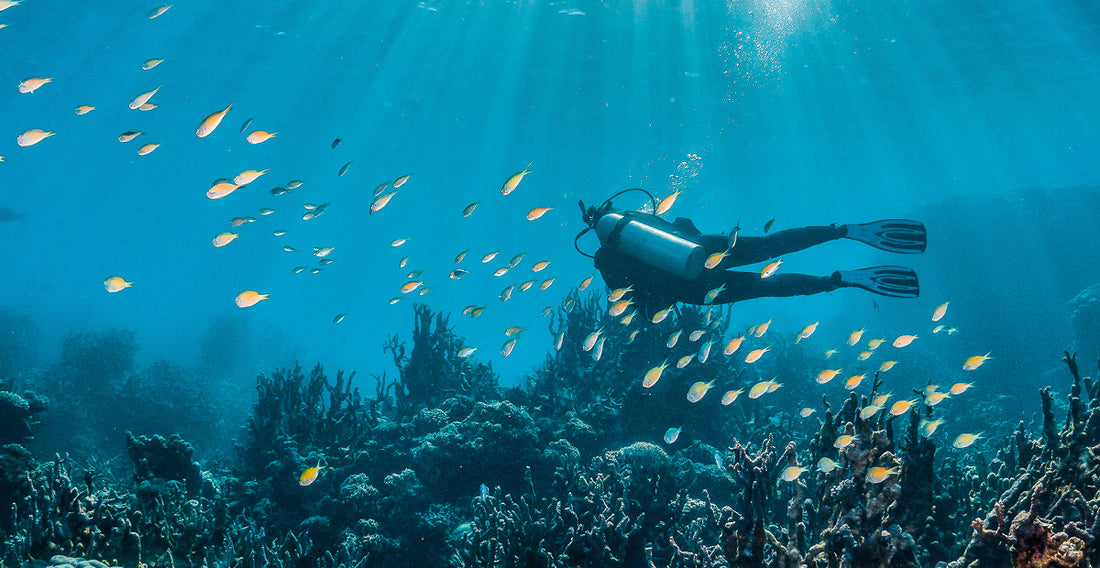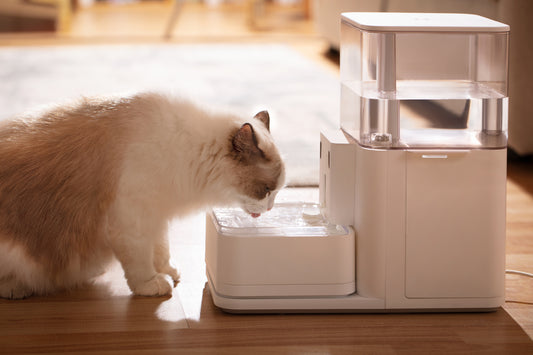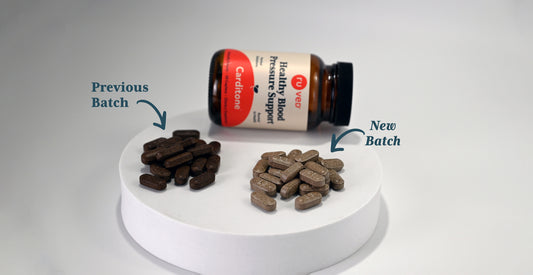Traveling is one of the great joys of living. Seeing new and exotic places, trying unique foods, and making memories are all precious experiences. Yet, it is not uncommon for us to not feel our best as soon as we hit the road. So, why is that? For the seasoned traveler, they tend to be aware and prepared of the possibility of shifting digestion, energy levels, or immune health as their body adapts to a new environment. For instance, how many of us have heard about, or experienced firsthand, arriving in a new destination only to feel lackluster the next day? While the stress of travel is a definite culprit, there is more to the story, and it involves a trip to a place unlike any other - your gut microbiome.
Dr. Brian, a naturopathic doctor and licensed acupuncturist, dives into common questions and strategies about our gut microbiome so you can explore the world healthily and happily!
What is the gut microbiome, and how does it influence our health?
Our gut microbiome is an integral part of our overall health. The microbiome, in essence, describes the complex ecosystem that exists between the microbes (i.e. bacteria, viruses, and fungi) and our own body’s cells. Typically, when we are talking about the microbiome, we are most commonly referring to gut bacteria and their role in human health. That said, your skin, nose, mouth, and intimate areas have vastly different microbiomes of their own. Each of these “mini worlds” have their own unique ecosystem of bacteria that require care to keep them fresh and healthy.
When discussing the gut microbiome (henceforth just the “microbiome”), we now know that it plays a huge role in more than our digestive health. Immune function, moods, and behaviors are also influenced by the microbiome. With such a big role in keeping us healthy, an imbalanced microbiome can be linked to higher risk for things like cardiovascular disease, diabetes, obesity, or even cancer.
One of the essential things to know about the microbiome is how fast it changes. For starters, the average lifespan of most species of gut flora is only about 20 minutes to an hour. So, by design, our gut microbiome changes rapidly and regularly. This is why we can see such impressive changes so quickly when we work to support our microbiome through probiotic supplementation, healthy diets rich in fiber, and pure drinking water, to name a few strategies. Unfortunately, the opposite can also be true: our gut microbiome can quickly be overrun by suboptimal or outright bad bacteria just as quickly when the environment of our gut is disturbed. The classic example is someone on high dose antibiotics for an important reason. While the antibiotics were essential, the gut flora was collateral damage which must be properly restored post-antibiotics. Without repair, various digestive concerns can linger for quite some time, or worse: a full blown pathogenic infection or overgrowth of harmful bacteria.
Some of the most common ways our GI flora is disturbed is through bad diet, long term high stress situations, insomnia, alcohol and tobacco products, as well as innocuous things such as traveling to a foreign location.
What happens to our gut flora when we travel to new locations?
As we mentioned, the gut flora in our bodies rapidly turn over normally and naturally in addition to whatever challenges life may throw at them/us. What’s more is that there are subtle and sometimes not subtle differences in the microbial makeup of different locations. Beyond this, when we travel, we are often exposed to many new people, foods, and environments. This is all what makes travel so fun, but also presents challenges to our immune system, and the microbiome that it is connected to. Without a strong and healthy microbiome, travelers are susceptible to experience nausea, traveler’s diarrhea, and feeling far from festive.
The microbiome works hand in hand with your immune system in both your respiratory gastrointestinal function. When we travel, the challenges our immune system faces tend to increase, resulting in additional instability and inflammation in an already ever-changing ecosystem.Can’t I just eat fermented foods and drink Kombucha?
Yes and no. Firstly, fermented foods are great for you, support your body’s gut flora, and are delicious! That said, when it comes to more aggressive challenges to the microbiome, such as when traveling, fermented foods tend to not be as useful for preventing any of the mishaps that can spring up.
What else can I do to help my microbiome?
Planting the seeds for good gut health on a daily basis helps ensure a strong and robust microbiome. Considering our bodies are comprised largely of water, it comes as no surprise that hydration is vital to maintaining a healthy microbiome. As we’ve discussed, the microbiome is extremely sensitive and changes easily. Additionally, you absorb most of the water in your large intestine, where the microbiome has the densest population. So, for sure, hydration plays a major role in keeping your microbiome healthy.
Of course you can take probiotic supplementation. This helps ensure healthy strains are being delivered right to where they’re needed most. Additionally, science has found that probiotic supplementation can be useful even when exposed to stomach acid and digestive enzymes. This is the concept of parabiotics, which is the concept that fragmented pieces of bacteria can also interact with, and thus support, healthy immune function in the body. While most probiotics are now engineered to be resistant to stomach acid, even if they aren’t, you’ll still see some benefits.
Get moving: If you find you tend towards sluggish bowels, make sure to increase your movement while on vacation. This mechanically helps regulate our GI so things keep moving along smoothly.
Another reason to love vegetables: Keep your diet clean and full of leafy vegetables. These act as prebiotics. Prebiotics are starches such as fiber we get from whole foods that our body may not absorb, as is the case with dietary fiber, but our microbiome however does digest and absorb. So all those vegetables not only keep you regular, contribute to health for every system of the body, they also benefit your microbiome at the same time!
What strains are best to look for in a probiotic?
For the most part, the best probiotics for staying balanced while traveling are going to be multi strain probiotics that combine bacteria from the genuses Lactobacillus and Bifidobacterium. There are other beneficial strains, but these two large groups tend to provide the most support to the immune system, the GI tract, and for mood support.




